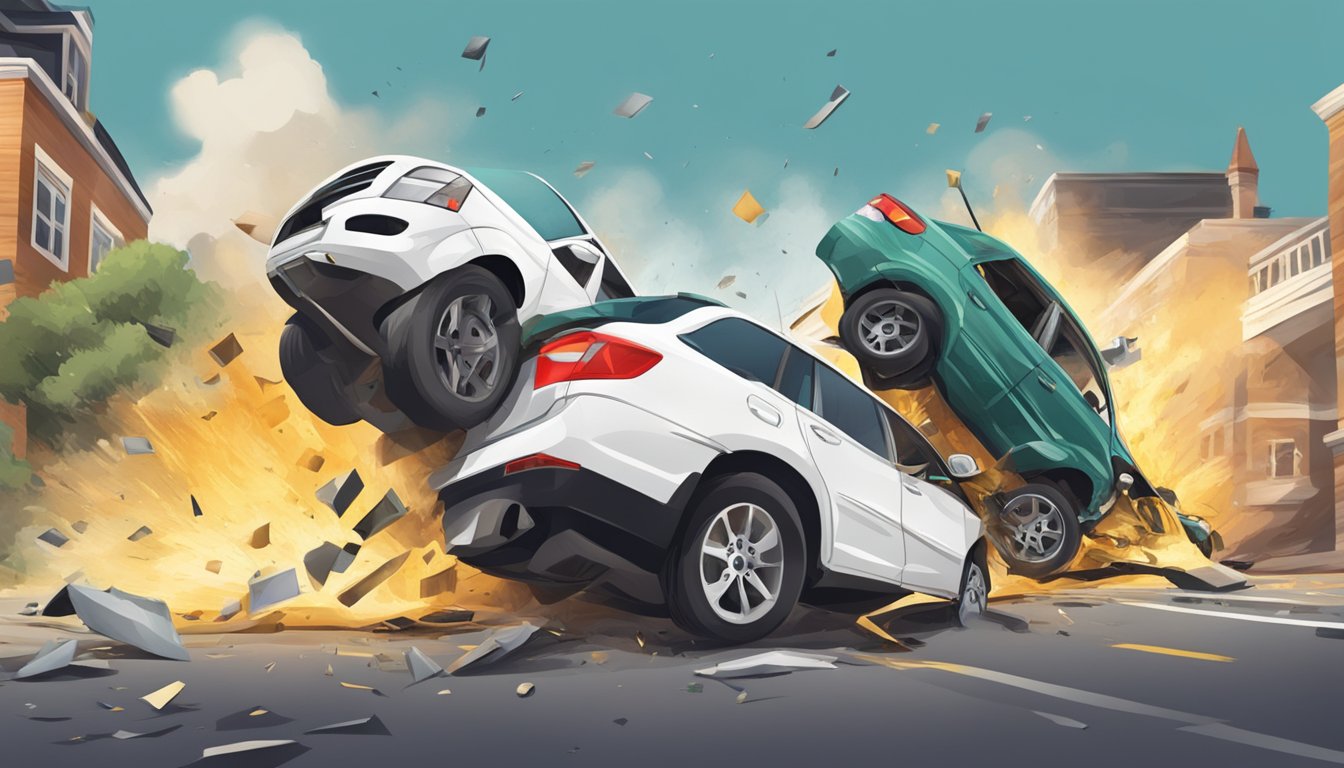Understanding Collision Insurance
Collision insurance is a type of auto insurance that covers the cost of repairing or replacing your vehicle if it’s damaged in an accident.
It provides protection regardless of who is at fault.
Key Features
Coverage: Collision coverage pays for damage to your car when you hit another vehicle or object, like a tree or pole.
It also covers rollovers.
Policy Requirements: Some lenders or leasing companies require you to carry collision insurance to protect their interest in the vehicle.
Financial Aspects
Premiums and Deductibles: When selecting a policy, you must choose a collision deductible.
This is the amount you pay out of pocket before your insurance covers the rest.
Higher deductibles typically lead to lower premiums.
Cash Value: The insurance will pay up to the car’s actual cash value at the time of the accident.
This can be important if your vehicle’s value has depreciated.
Considerations
State Laws: Not all states mandate collision insurance, but it can be a wise choice to protect your investment.
Exclusions: Be aware of policy exclusions.
These are conditions or scenarios not covered by your insurance.
Rate Factors: Your car insurance rates can be affected by various factors, including your driving record, age, and location.
When understanding collision insurance, knowing these elements can help you make an informed decision about your coverage needs.
Protect your vehicle and manage financial risks by choosing the right collision insurance policy.
Collision Insurance in Action
Collision insurance plays a crucial role in protecting your vehicle after an accident.
Whether you hit a tree, a telephone pole, or another car, this coverage ensures your car can be repaired or replaced.
If you’re in a single-car accident and your car rolls over, collision coverage applies.
It also covers hit-and-runs and damage caused when hitting an animal.
When you file a claim after an accident, your insurance provider assesses the damage and determines if repairs or replacement costs are necessary.
You may need to pay a deductible before the insurance kicks in.
Imagine you’re involved in an accident with another car.
Regardless of who’s at fault, your collision insurance covers your car repairs.
If the other party was at fault, their liability insurance might pay for your repairs.
Meanwhile, if your car is totaled, the insurance company provides replacement costs based on your policy.
This ensures you are not left without a vehicle after a major collision.
Let’s say you hit a stationary object, like a fence.
Collision insurance will cover the expenses to fix your car, making sure you’re not out of pocket for property damage.
In rare cases, where your insurance payout isn’t enough to cover all damages or you disagree with the insurer’s assessment, being familiar with the role of a claimant can be beneficial.
Understanding your rights ensures you get the full benefits you’re entitled to.
In summary, collision insurance is indispensable for anyone who wants peace of mind while driving, providing essential financial protection in various accident scenarios.
Related Insurance Terms and Policies

Collision Insurance:
Collision insurance covers repairs or replacement of your car if you crash into another car or object.
This type of insurance is important if you have a lease or loan on your vehicle.
Comprehensive Insurance:
Comprehensive insurance covers non-collision incidents like theft, vandalism, and natural disasters.
It helps pay for damage from events other than accidents.
Liability Insurance:
Liability insurance pays for damage you cause to other people or property.
It is usually divided into bodily injury liability and property damage liability.
Deductible:
A deductible is the amount you pay out-of-pocket before your insurance covers the rest.
Higher deductibles generally mean lower premiums but more cost if an accident happens.
Uninsured/Underinsured Motorist Coverage:
This covers you when the other driver either has no insurance or insufficient insurance.
It can pay for medical costs and car repairs.
Actual Cash Value:
Actual cash value is the amount you get from your insurer after a loss, minus depreciation.
It’s not the same as the replacement cost.
Policy Non-Renewal and Cancellation:
Insurers can choose to not renew or cancel your policy based on various factors. Learn key differences between non-renewal and cancellation.
No-Fault Insurance:
In no-fault states, this insurance covers your medical expenses after an accident, regardless of who is at fault.
Coinsurance:
Coinsurance involves splitting the cost of covered services between you and your insurer.
An 80/20 split is common, where you pay 20%, and the insurer pays 80%.
Insurance Broker:
An insurance broker can help you find the best policies and rates, providing expert, unbiased advice to save you money and time.
Understanding these terms and policies can help you make better decisions about your car insurance needs.






